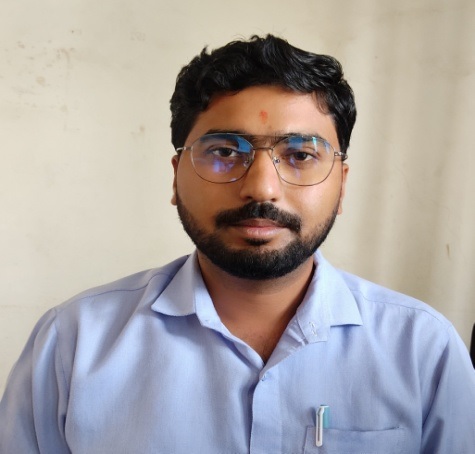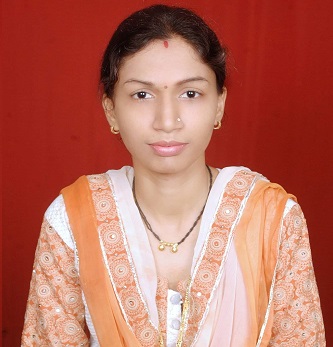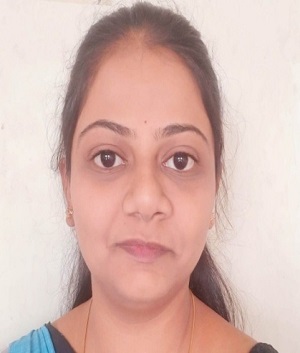Department of Electronics & Telecommunication Engineering
VISION
To be center for excellence to educate and train a smart and skillful way by providing the exposure and platform for rural and urban areas.
MISSION
- To provide a strong platform for students for their improvement and innovation with strong academic knowledge with value addition for business and industry.
- To inculcate the environment to develop tomorrows entrepreneurs.
- To offer a well- balanced program of instruction, practical experience, and opportunities for overall personality development.

PROF. PRATIK DESHMUKH
B.E. (E & TC), M.E (DIGITAL ELECTRONICS)HOD
Our Vision is to be centre of excellence; to educate and train in a smart and skillful way by providing the exposure and platform; for the students from rural and urban areas. Learning is a continuous process and does not end with the acquisition of a degree, especially because steady and rapid advances in technologies have shortened the life of tools and techniques prevalent today. Therefore, we do not aim to make our students walking manuals; instead they are given a strong foundation in Electronics & Telecommunication. The Department has excellent lab facilities; which are being upgraded from time to time and provide ample opportunities; for the students to learn and innovate. The Department organizes interactive Add-on programs and workshops, by inviting Educationalists and Technocrats from industries, for the overall development of students as well as faculties. The department has well qualified faculty members with considerable experience in academics, research and industry, I am sure that all the students of the department will be capable of visualizing, planning and developing big projects for commercial and research interests in their respective field of expertise. The graduates from Electronics and Telecommunication Stream have been selected by leading software and hardware companies of the country

PROF. SHRADDHA A. JUMALE
B.E. (E & TC), M.E. (DE)-

Prof. Darshna Sarnaik
B.E. (E & TC), M.E. (DE)-

Prof. Mayuri P. Kulkarni
B.E.(CSE)-

Prof. Shantanu K. Unhale
B.E.(Electrical)-
PO'S
PO1:
Engineering knowledge: Apply the knowledge of mathematics, science, engineering fundamentals, and an engineering specialization to the solution of complex engineering problems.
PO2:
Problem analysis: Identify, formulate, review research literature, and analyze complex engineering problems reaching substantiated conclusions using first principles of mathematics, natural sciences, and engineering sciences.
PO3:
Design/development of solutions: Design solutions for complex engineering problems and design system components or processes that meet the specified needs with appropriate consideration for the public health and safety, and the cultural, societal, and environmental considerations.
PO4:
Conduct investigations of complex problems: Use research-based knowledge and research methods including design of experiments, analysis and interpretation of data, and synthesis of the information to provide valid conclusions.
PO5:
Modern tool usage: Create, select, and apply appropriate techniques, resources, and modern engineering and IT tools including prediction and modeling to complex engineering activities with an understanding of the limitations.
PO6:
The engineer and society: Apply reasoning informed by the contextual knowledge to assess societal, health, safety, legal and cultural issues and the consequent responsibilities relevant to the professional engineering practice.
PO7:
Environment and sustainability: Understand the impact of the professional engineering solutions in societal and environmental contexts, and demonstrate the knowledge of, and need for sustainable development.
PO8:
Ethics: Apply ethical principles and commit to professional ethics and responsibilities and norms of the engineering practice.
PO9:
Individual and team work: Function effectively as an individual, and as a member or leader in diverse teams, and in multidisciplinary settings.
PO10:
Communication: Communicate effectively on complex engineering activities with the engineering community and with society at large, such as, being able to comprehend and write effective reports and design documentation, make effective presentations, and give and receive clear instructions
PO11:
Project management and finance: Demonstrate knowledge and understanding of the engineering and management principles and apply these to one’s own work, as a member and leader in a team, to manage projects and in multidisciplinary environments
PO12:
Life-long learning: Recognize the need for, and have the preparation and ability to engage in independent and life-long learning in the broadest context of technological change.
PSO'S:
A graduate of the Electronics &Telecommunication Program will demonstrate:
1. PSO1: Solve Electronics and Telecommunication Engineering problems and to design, implement and troubleshoot real world problems using latest engineering tools.
2. PSO2: Use knowledge, technical skills and communication skills for higher studies, research work and have a successful career with social and ethical awareness.
Laboratory Details
| Sr No | Name of Laboratory | Room No. |
|---|---|---|
| 1 | Analog& Digital Electronics Lab | |
| 2 | Microprocessor & Microcontroller Lab | CF-10 |
| 3 | Power Electronics & Drives Lab | CF-09 |
| 4 | Communication & Microwave Lab | CF-11 |
| 5 | Instrumentation & Skill Development Lab | CF-12 |
| 6 | DSP & VLSI Lab | AG-09 |
